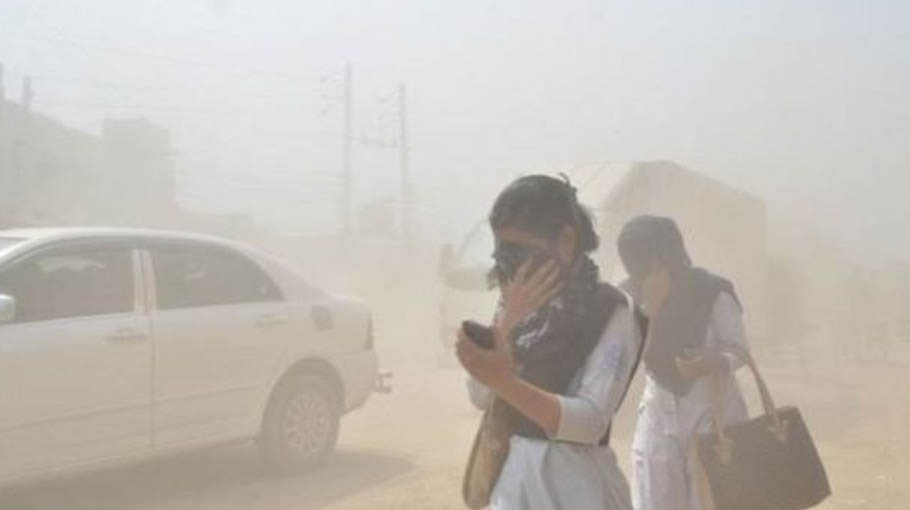Air pollution still shrinking longevity

Extreme air pollution decreases the average life expectancy of people across the country by about five and a half years. However, for Dhaka, the pollution level is much higher reaching 7.7 years.
Speakers at a rally in the city, held in front of the National Museum, demanded a substantial decrease in dust pollution, especially in the cities.
They brought out the rally titled – ‘Dust pollution increasing risks of deaths and health problems, effective measures demanded to prevent dust pollution’. The rally was organized by nine environment-based organizations including Save the Environment Movement (POBA).
The speakers referring to Life Index research, the average life expectancy decreased by about 2.8 months due to air pollution in 1998. In 2019 the figure rose to 5.4 months.
According to the study, the rate of air pollution in each of the 64 districts of the country is at least three times higher than the policy of the World Health Organization.
POBA Chairman Abu Naser Khan said that the capital is the second most polluted city in the world. The level of pollution due to dust is now even more alarming. About one and a half crore people of Dhaka city are actually living in an incredible poisonous gas.
“During the dry season, the incidence of dust pollution in Dhaka increases drastically. One of the causes of air pollution in our country, especially in Dhaka, is brick kilns, factories, construction and vehicle fumes. In this situation, the average life expectancy in Dhaka has decreased by eight-years due to air pollution,” he said.
The speakers further said that smoke and dust from other sources combine to create haze and this polluted air stays in the same place for a long time. As a result, dust pollution combines with other sources, increasing the level of air pollution.
Although the government has taken many steps to prevent dust pollution, it is not enough to control air pollution. Neighboring India has recently been hit by air pollution that has forced the government to close schools and colleges, they added.
The speakers expressed concern that the situation in Dhaka is moving in that direction. Due to this, they called upon the government to take immediate and effective steps to avoid air pollution.
“The unplanned increase in development projects and transporting construction materials including soil, sand, bricks in uncovered trucks etc heavily contribute to the pollution. The drains are clogged and dirt dumped on the side of the road,” said a speaker at the human chain.
They also mentioned that the extra vehicles plying on the roads of Dhaka are playing a major role in creating traffic congestions as well as air pollution in the capital.
On average, about three lakh mechanical vehicles ply in Dhaka every day. Almost all the buses, minibuses, private cars, CNG auto rickshaws, and other public vehicles in the city are not up to fit standards. Smoke from these unfit vehicles is responsible for air pollution.
Engineer Abdus Sobhan, General Secretary of POBA presided over the human chain. President of Old Dhaka Citizens' Enterprise Nazimuddin, freedom fighter KM Siddique Ali, Legal Secretary Mohammad Omar Farooq and others spoke during the movement.




